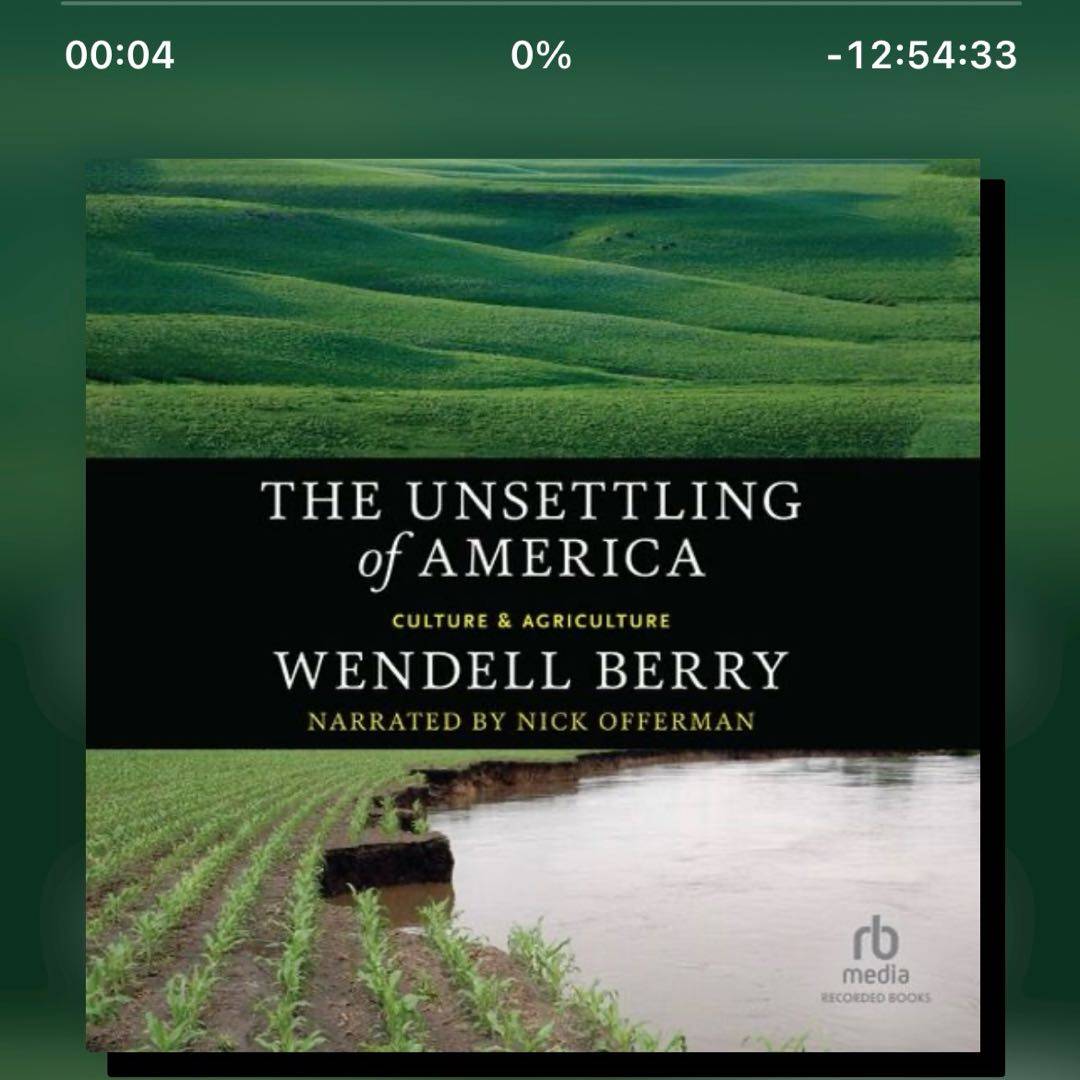
Very informative
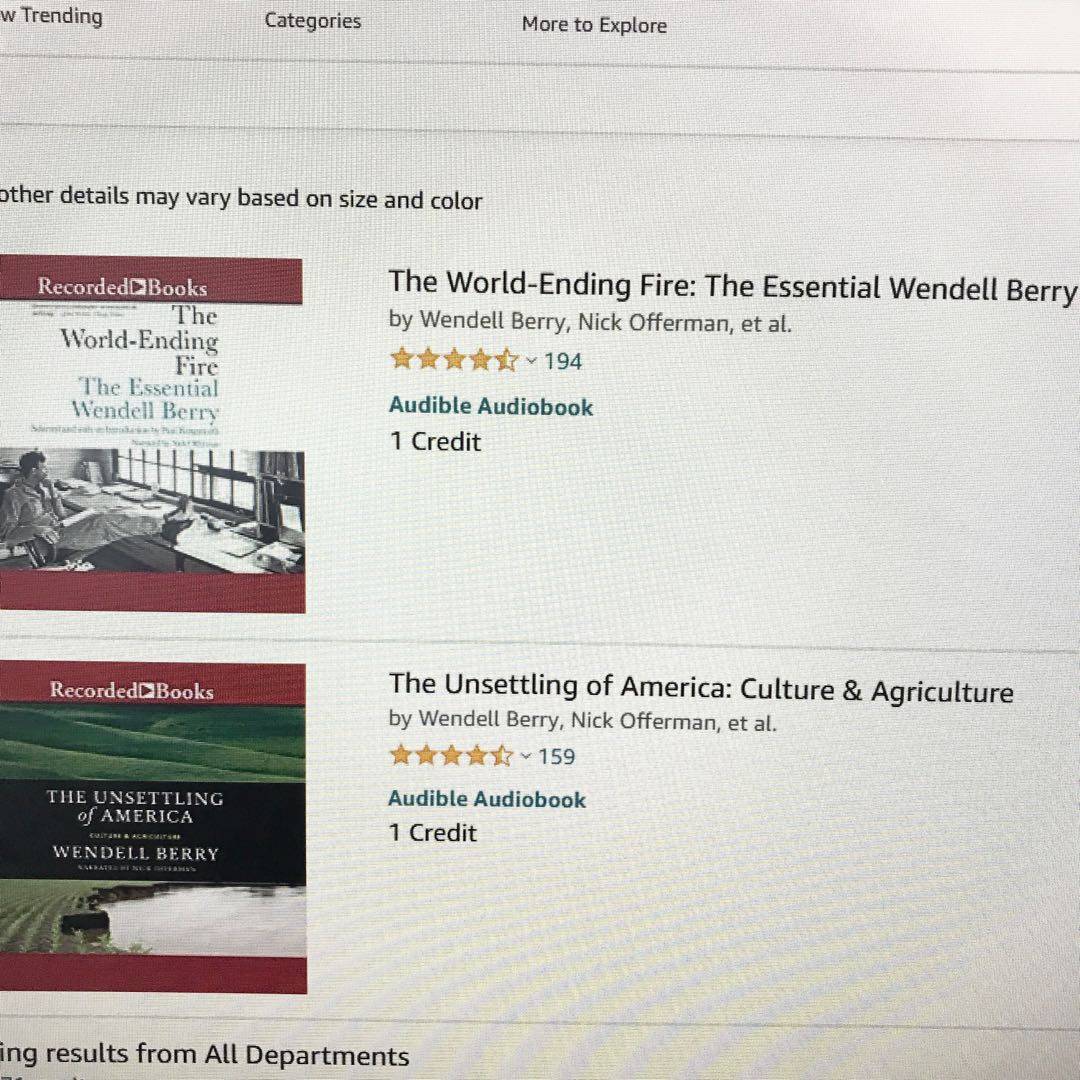
Wendell Berry fans: Between the two, would you suggest someone new to Berry start with his essay collection The World-Ending Fire: The Essential Wendell Berry or his essay collection The Unsettling of America: Culture & Agriculture?
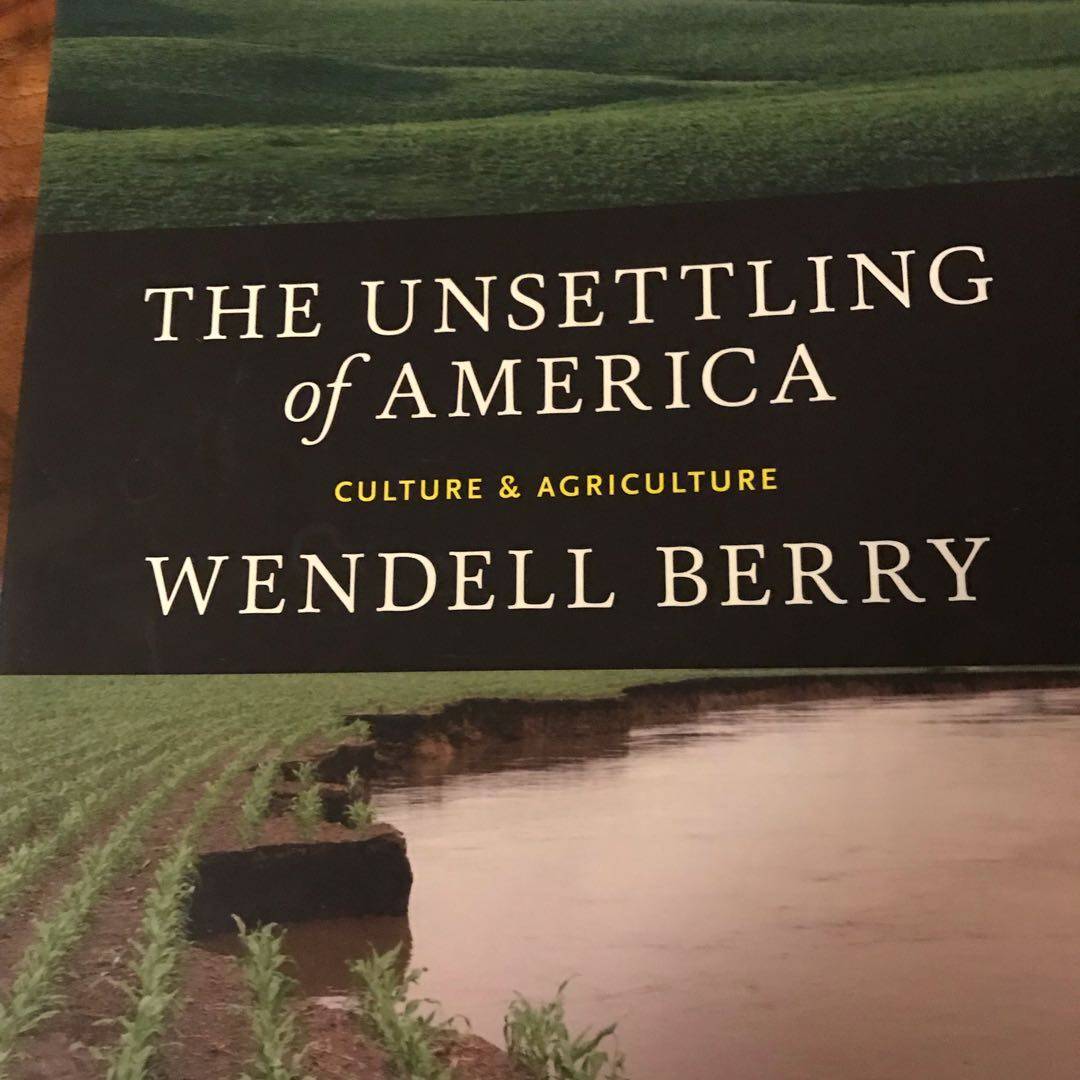
I‘m giving this one a pick because I adore Wendell Berry, & there is so much useful info & wise thoughts in here. This became a chore to get through for me though because the last part of the book has a lot of farming info that I‘m not interested in. I can see why this is an important work in the argument for small & organic farming. I love when Berry gets mad at “experts”. This was my #bookspin for June, just now finishing it. @TheAromaofBooks
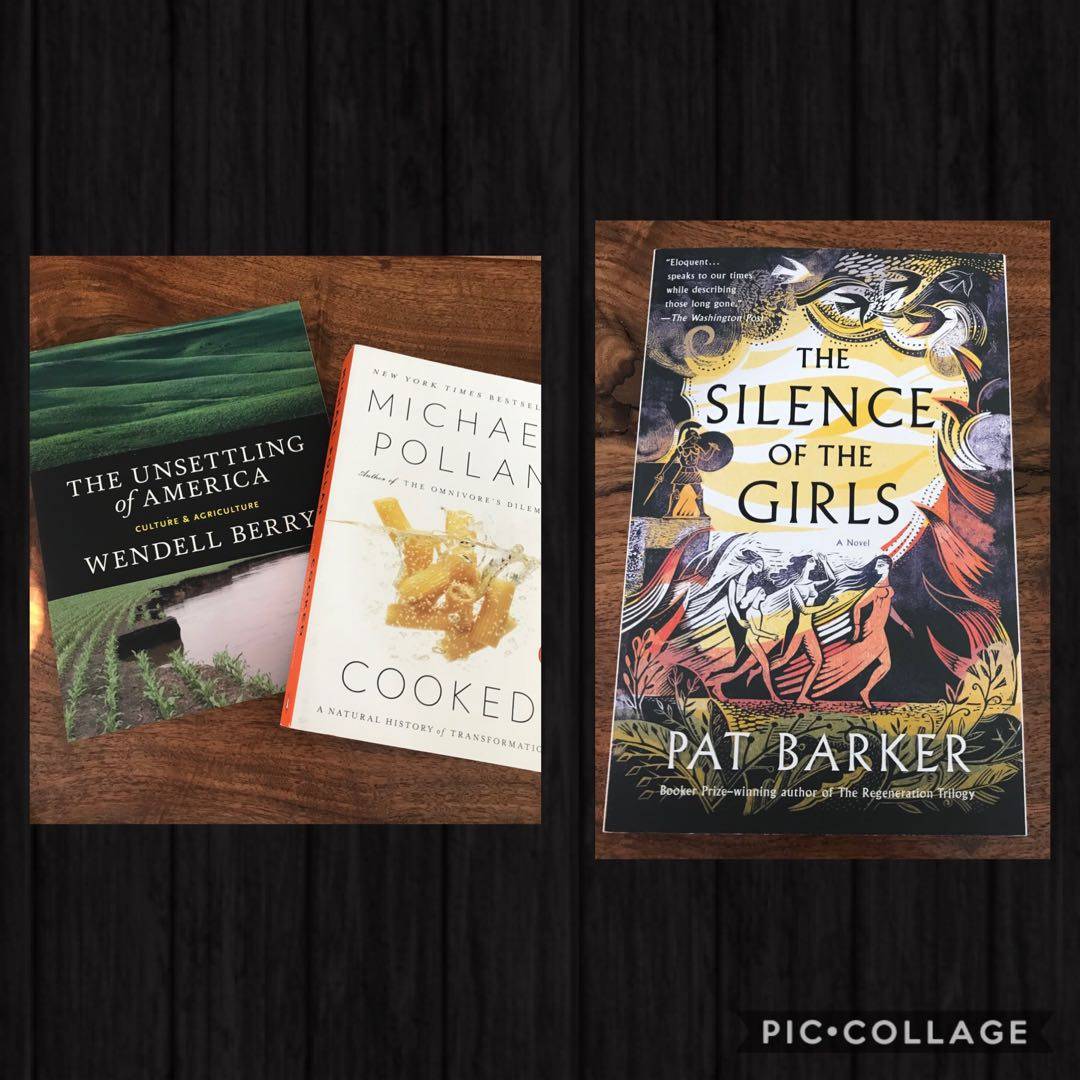
After the #bookspin drawing today, I realized these 3 books are connected. My bookspin is the Wendell Berry. I had planned on reading Cooked this month for my library challenge prompt. Pollan is a fan of Berry & dedicated this book to him, which is a major reason I bought it. I got both Cooked & Silence of the Girls (#doublespin) at The Book Loft last yr. I‘m happy with the bookspin results because I wanted a NF & fiction book. @TheAromaofBooks
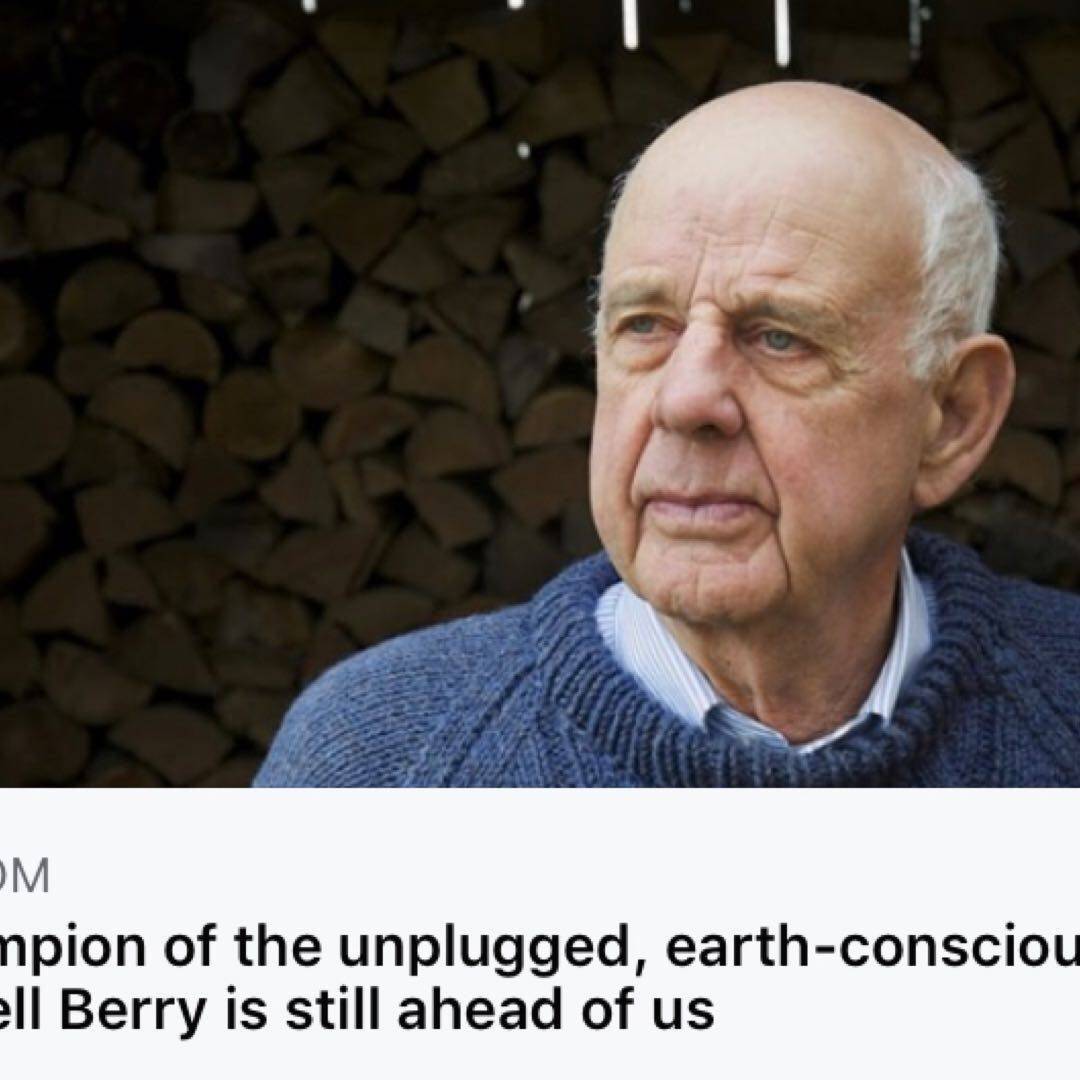
https://www.vox.com/the-highlight/2019/10/2/20862854/wendell-berry-climate-chang...
I can‘t remember if I‘ve posted this article before, but I‘m putting it here again. It‘s a little long, but it explains why I love Wendell Berry. @ljuliel
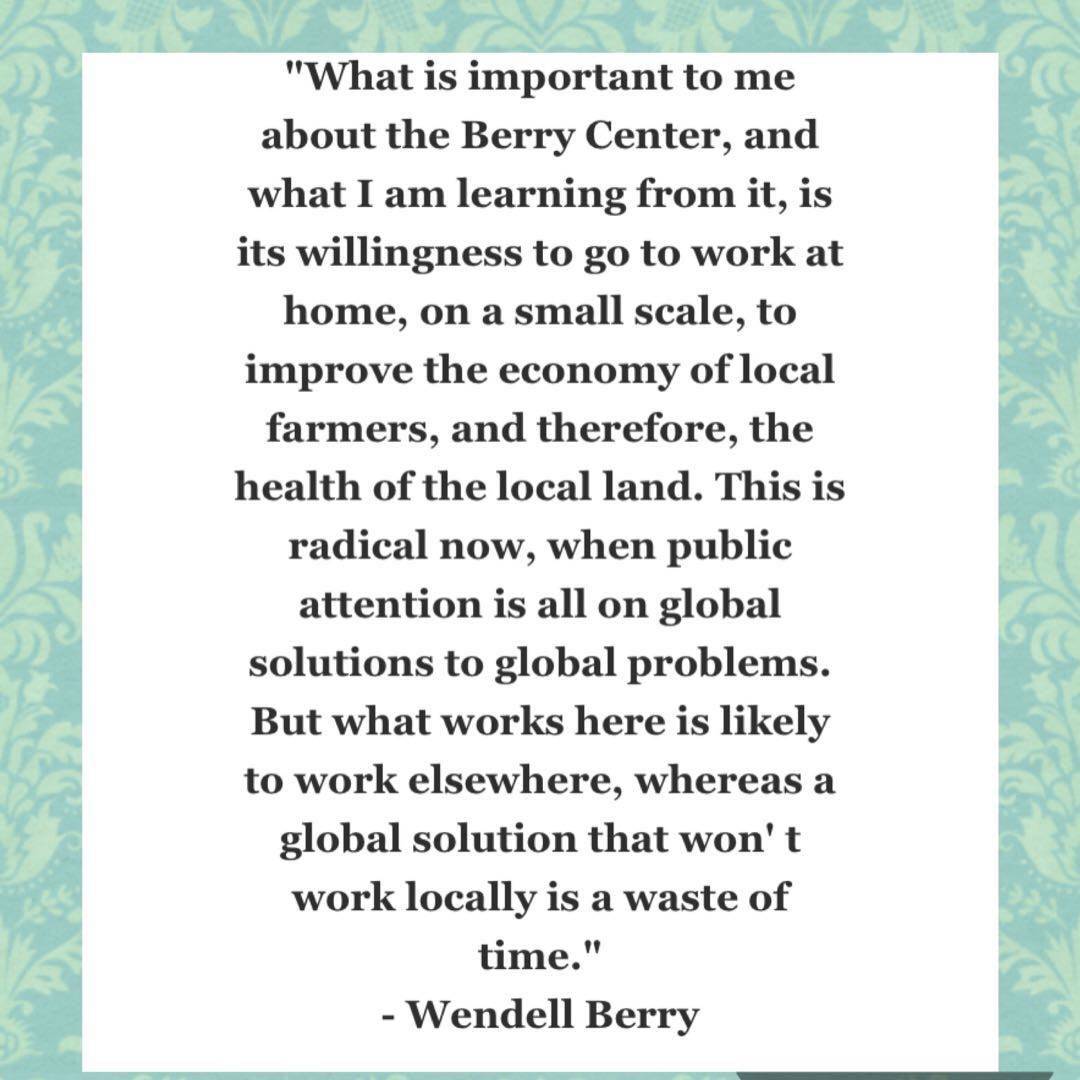
I like this quote from Wendell Berry. It‘s in an email from The Berry Center, which does education & helps local farmers. It‘s a good reminder. @Emilymdxn @ljuliel
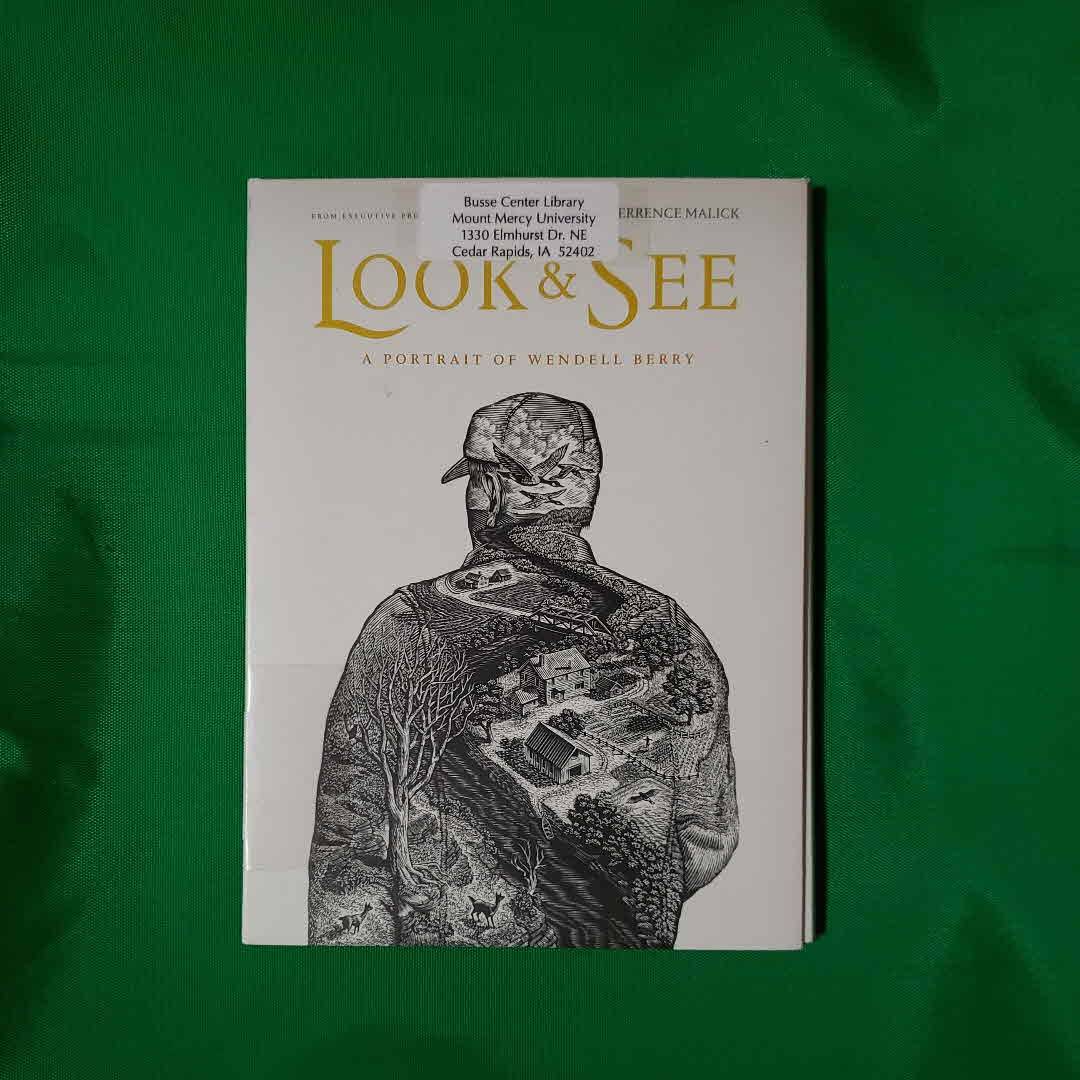
Watched this documentary this morning! I had to get it through Interlibrary Loan, but it was worth the wait. What a poignant biography and commentary on farming versus change for the sake of "progress." Really good!
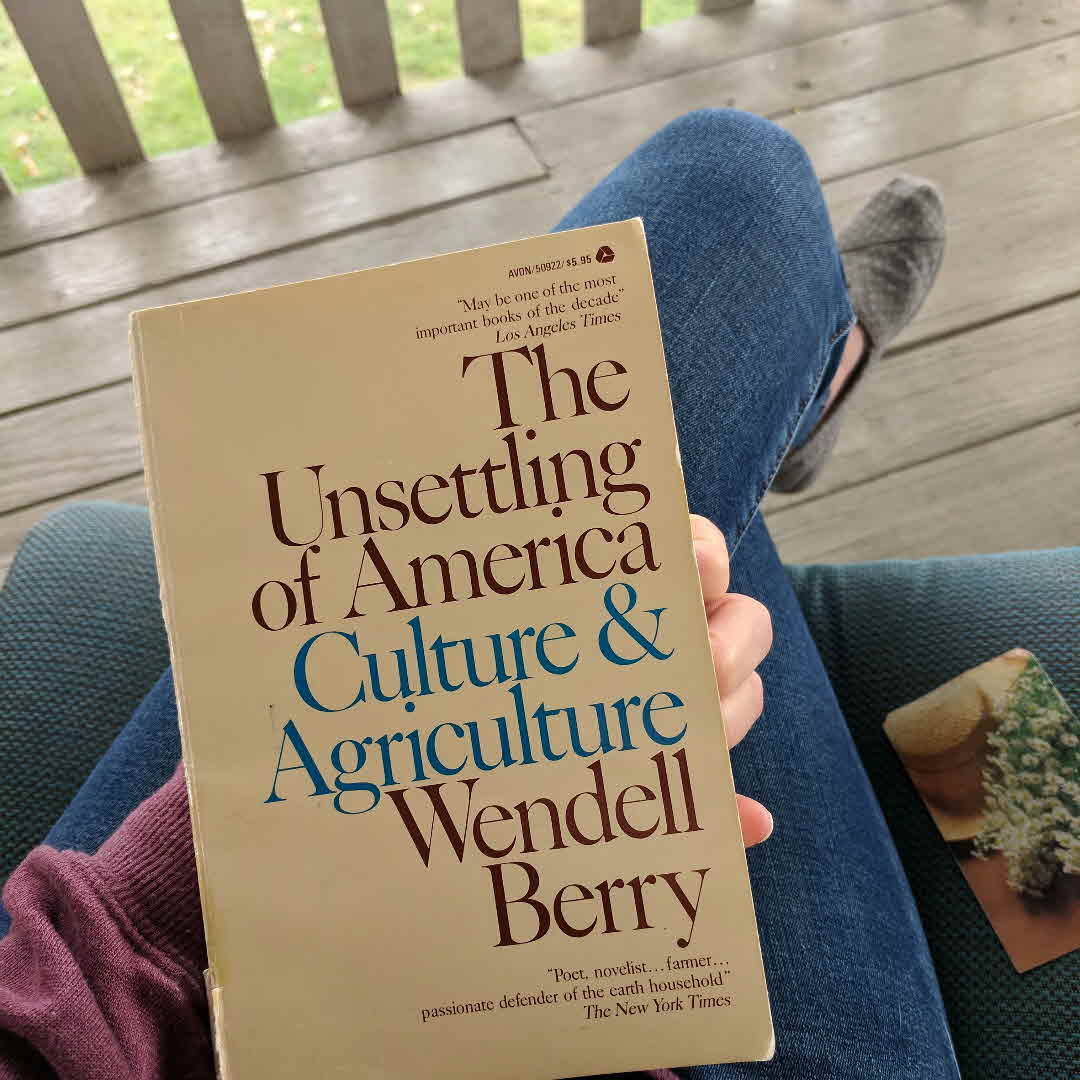
Nature never loses anything: she preserves and protects herself.
For the care or control of fertility, both that of the earth & that of our bodies, we have allowed a technology of chemicals & devices to replace entirely the cultural means of ceremonial forms, disciplines, & restraints. We have gathered up the immense questions that surround the coming of life into the world & reduced them to simple problems for which we have manufactured & marketed simple solutions. An infertile woman and an infertile field...
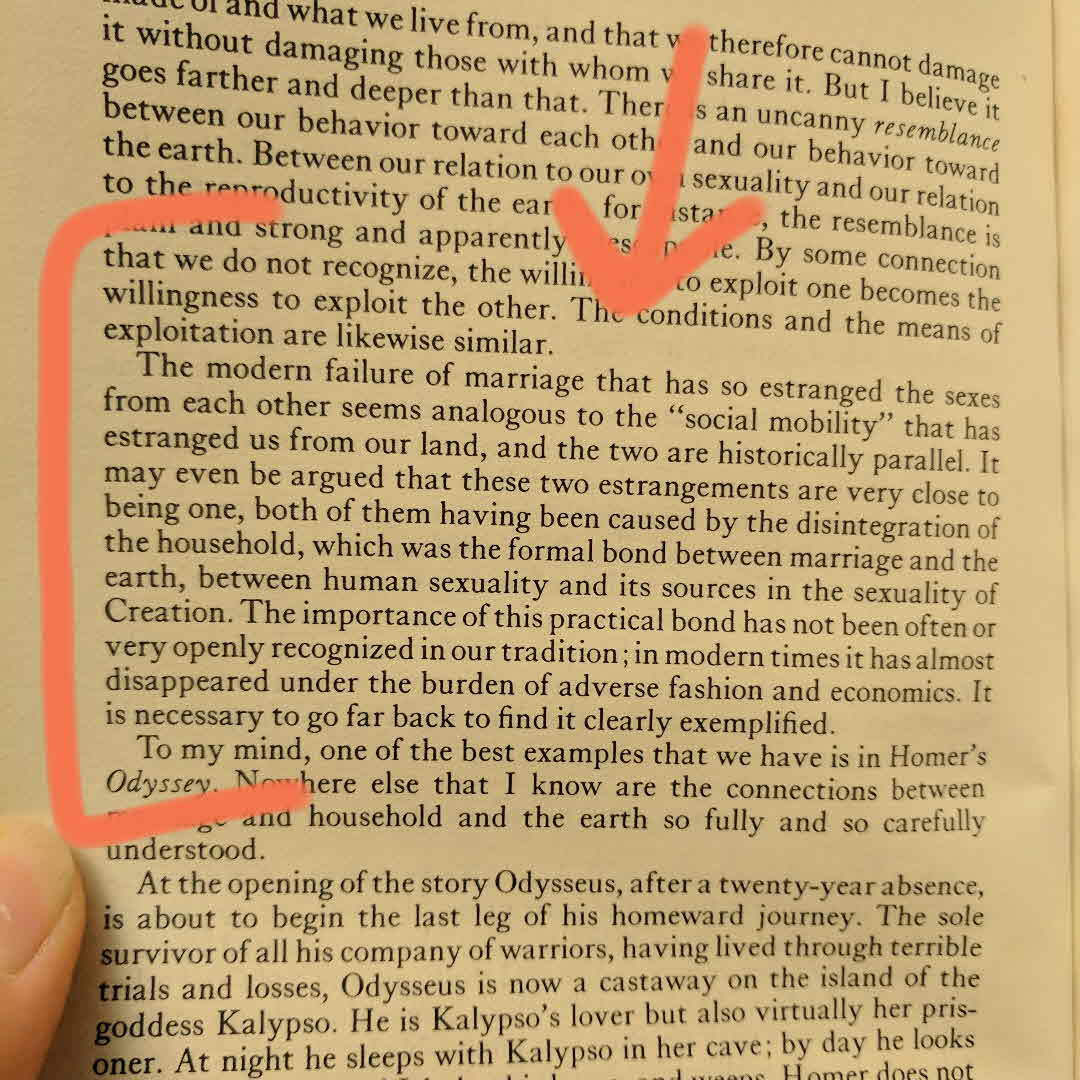
It's taken me a long time to get into this book. Berry mostly talks on agricultural issues (which do interest me, in general, because food has caused so many of my health issues).
But this... This is such an interesting correlation. What do you think?
The Amish "have escaped the mainstream American Life of distraction, haste, aimlessness, violence, and disintegration....The Amish no doubt have their problems; I do not wish to imply they are perfect. But it cannot be denied that they have mastered one of the fundamental paradoxes of our condition: we can make ourselves whole only by accepting our partiality, by living within our limits, by being human -- not by trying to be gods."
There is an inescapable kinship between farming and art, for farming depends as much on character, devotion, imagination and the sense of structure, as on knowledge. It is a practical art. But it is also a practical religion, a practice of religion, a rite. By farming we enact our fundamental connection with energy and matter, light and darkness.
The soil is the great connector of lives, the source and destination of all. It is the healer and restorer and resurrector, by which disease passes into health, age into youth, death into life. Without proper care for it we can have no community, because without proper care we can have no life.
It is typical of the mentality of our age that we cannot conceive of infinity except as an enormous quantity. We cannot conceive of it as orderly process, as pattern or cycle, as shapeliness. We conceive of it as inconceivable quantity -- that is, as the immeasurable. Any quantity that we cannot measure we assume must be infinite.... If we think of infinite energy as immeasurable fuel, we are committed in the same thought to it's destruction.
The difficulty with mechanically extractable energy is that so far we have been unable to make it available without serious geological & ecological damage, or to effectively restrain its use, or to use or even neutralize its wastes. From birth... we are carrying the physical & the moral poisons produced by our crude & ignorant use of this sort of energy. And the more abundant the energy of this sort... the more abounding must be the consequences.
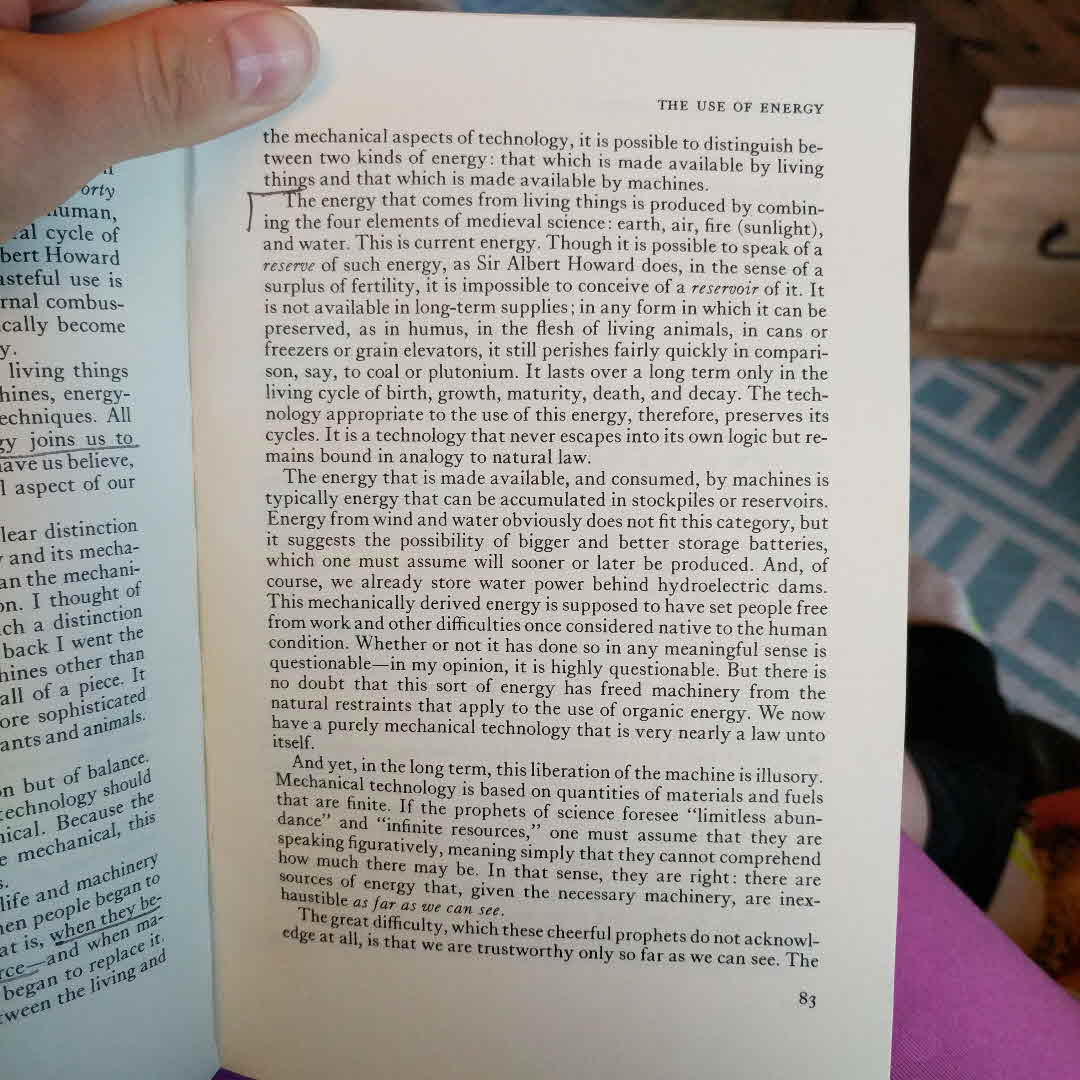
Living energy vs. mechanical energy.
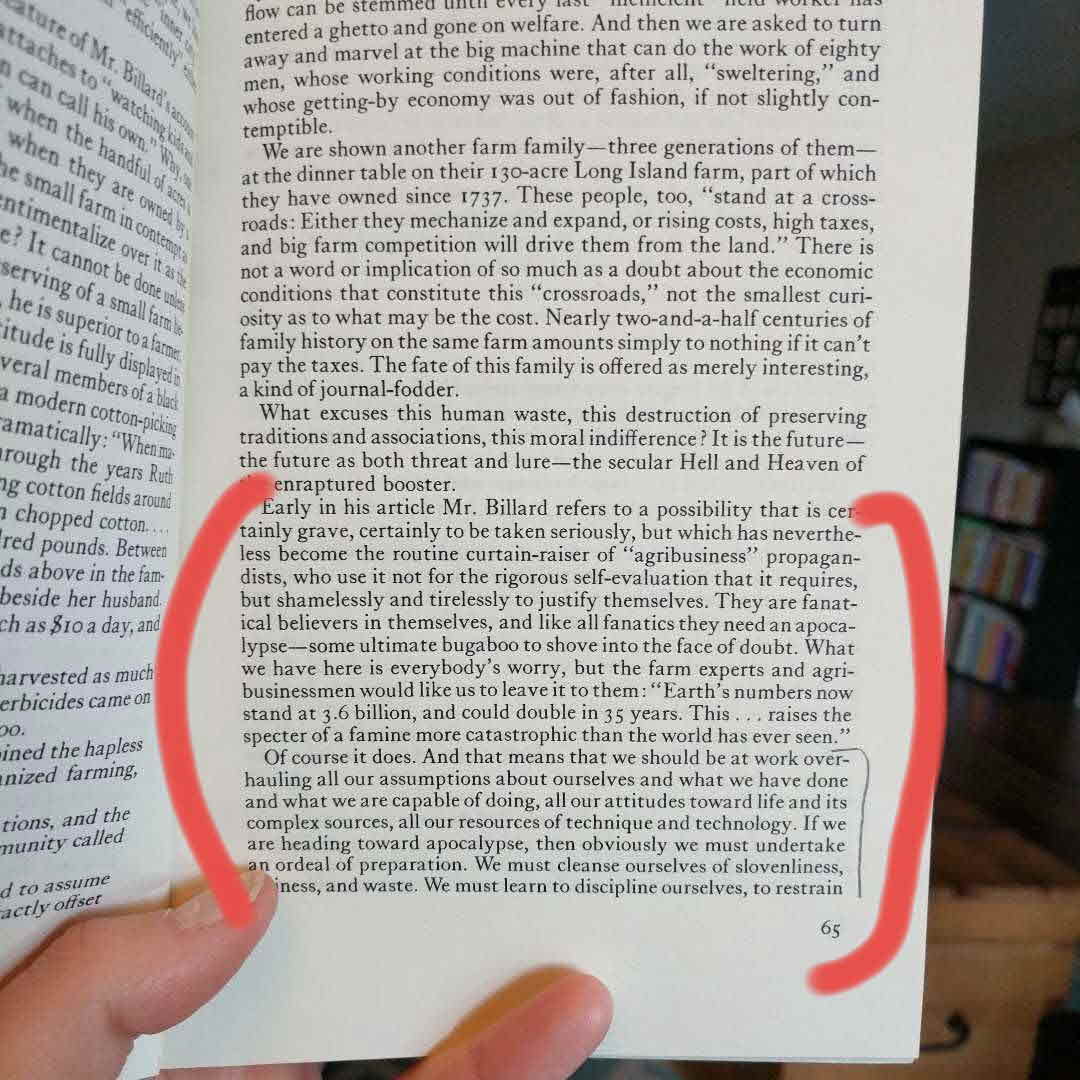
We must learn to discipline ourselves, to restrain ourselves, to need less, to care more for the needs of others. We must understand what the health of the earth requires, and we must put that before all other needs. If a catastrophic famine is possible, then let us undertake the labors of wisdom and make the necessary sacrifices of luxury and comfort.
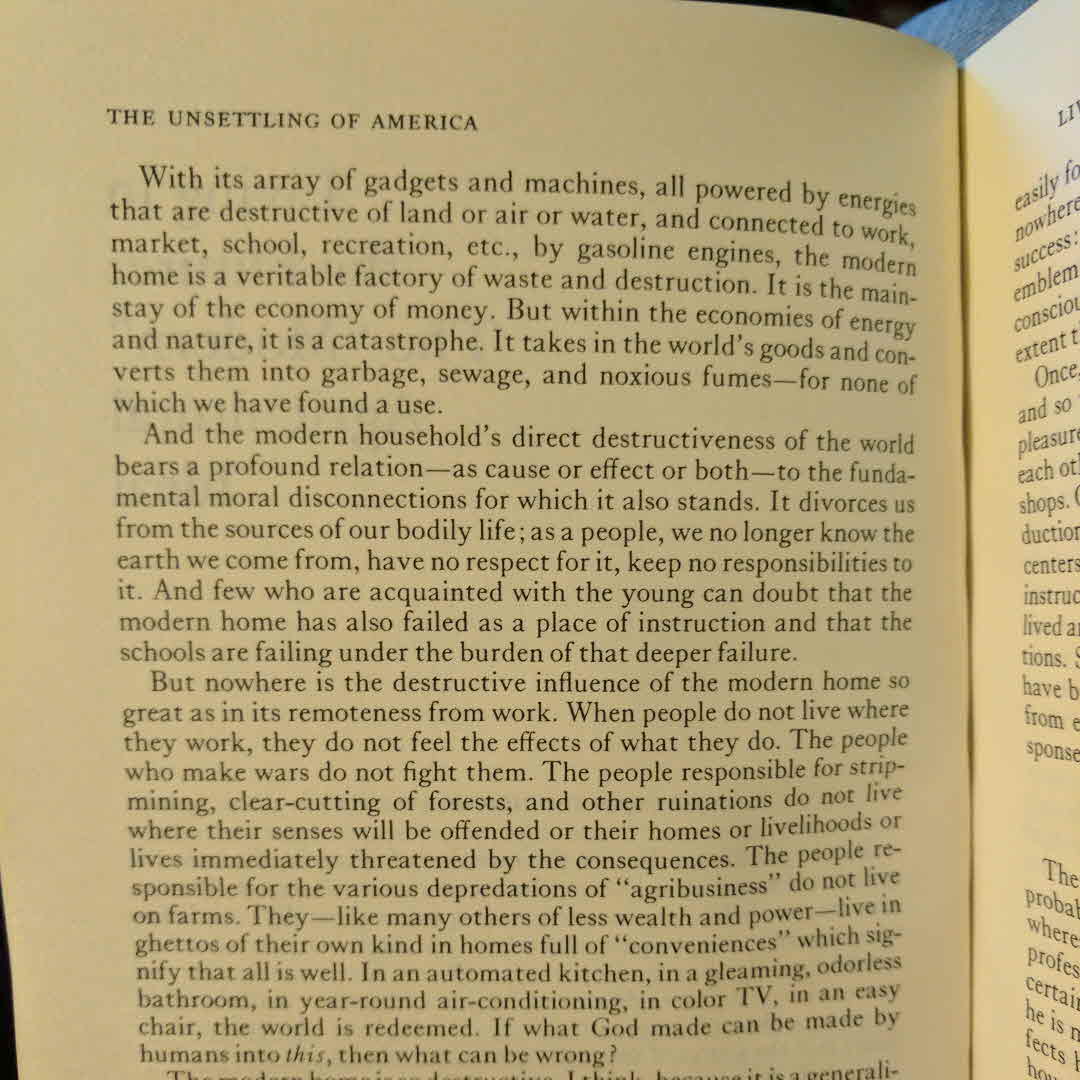
It divorces us from the sources of our bodily life; as a people, we no longer know the earth we come from, have no respect for it, keep no responsibilities to it.
Under the discipline of unity, knowledge and morality come together. No longer can we have that paltry "objective" knowledge so prized by the academic specialists. To know anything at all becomes a moral predicament.
Sir Albert Howard saw the significance of the "wide chasm between science in the laboratory & practice in the field." He devoted his life to bridging that chasm. His is the story of a fragmentary intelligence seeking both its own wholeness & that of the world. The aim that he finally realized in his books was to prepare the way "for treating the whole problem of health in the soil, plant, animal & man as one great subject."
It is by the measure of culture, rather than economics or technology, that we can begin to reckon the nature and the cost of the country-to-city migration that has left our farmland in the hands of only five percent of the people. From a cultural point of view, the movement from farm to city involves a radical simplification of mind and character.
A culture is not a collection of relics or ornaments, but a practical necessity, & it's corruption invokes calamity. A healthy culture is a communal order of memory, insight, value, work, conviviality, reverence, aspiration. It reveals the human necessities & the human limits. It clarifies our inescapable bonds to the earth & to each other.
"The economy is still substantially that of the fur trade, still based on the same general kinds of commercial items: technology, weapons, ornaments, novelties, and drugs. The one great difference is that by now the revolution has deprived the mass of consumers of any independent access to the staples of life: clothing, shelter, food, even water. Air remains the only necessity that the average user can still get for himself."
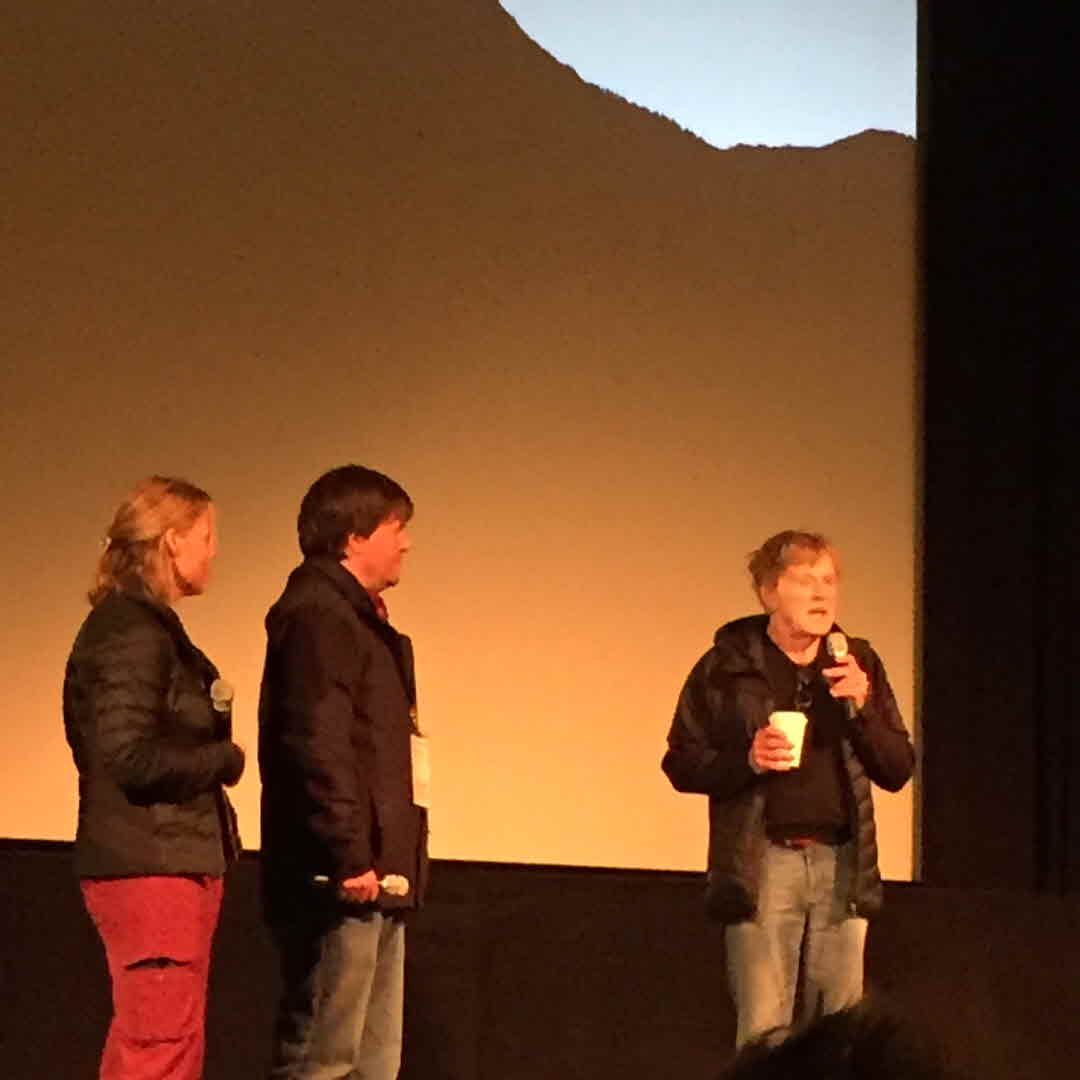
Our first film at Sundance was Look and See, a beautiful documentary about Wendell Berry. Robert Redford took the stage for the Q & A!